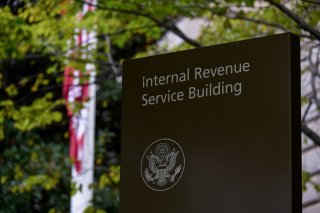There’s More Than Just One Tricky Tax Deadline on April 18
Some Americans will have to make estimated tax payments by tax day to avoid penalties.
With tax day fast approaching on April 18, many Americans who haven’t filed their taxes are likely solely focused on meeting that important deadline.
But, as reported by personal finance expert Kate Dore at CNBC, some taxpayers might be overlooking another tricky deadline—“the due date for first-quarter estimated tax payments.”
Doesn’t Impact all Americans
CNBC noted that Americans who receive income from self-employment, a small business, gig economy work, investments, and other sources of income must make estimated tax payments if they want to fully avoid potential underpayment penalties next tax season.
But those with employers that withhold money from each paycheck can generally skip the estimated tax payments. “Everyone needs to pay taxes,” certified financial planner Bryan Hasling, partner at Lodestar Private Asset Management, told CNBC.
“And the IRS strongly prefers that you pay them steadily across the year as opposed to waiting until the last minute,” he continued.
Taxpayers should be aware that underpayment penalties can add up quickly. According to Dore, the “penalty is 0.5 percent of your balance due, for each month after the due date, up to 25 percent.”
“You can avoid penalties by covering 90 percent of your 2022 taxes or paying 100 percent of your 2021 bill if your adjusted gross income is $150,000 or less. (You’ll need 110% of your 2021 bill if you earn more than $150,000.),” she continues.
Filing an Extension
One option that taxpayers have is to file an extension. However, that doesn’t mean that the money owed to the IRS is put on hold.
“People do have a tendency to wait until the last minute,” Eric Bronnenkant, head of tax at Betterment, told CBS News.
“You can get an extension for six months or so, but one of the most important things to know about filing for an extension is that it's not an extension to pay,” he added.
According to TurboTax, the IRS will grant taxpayers an automatic extension as long as they complete Form 4868. “Common reasons for requesting an extension include a lack of organization, unanticipated events or tax planning purposes,” the site writes.
“This form can also be used through the IRS' Free File service, and can be used regardless of income,” adds Aimee Picchi at CBS. “Typically, only people with adjusted gross income below $73,000 can use the Free File service, but anyone can use it to ask for an extension.”
Experts warn that those who don’t file their taxes at all and don’t pay what they owe will potentially be subjected to both the failure-to-file fee and the underpayment penalty.
Ethen Kim Lieser is a Washington state-based Finance and Tech Editor who has held posts at Google, The Korea Herald, Lincoln Journal Star, AsianWeek, and Arirang TV. Follow or contact him on LinkedIn.
Image: Reuters.

